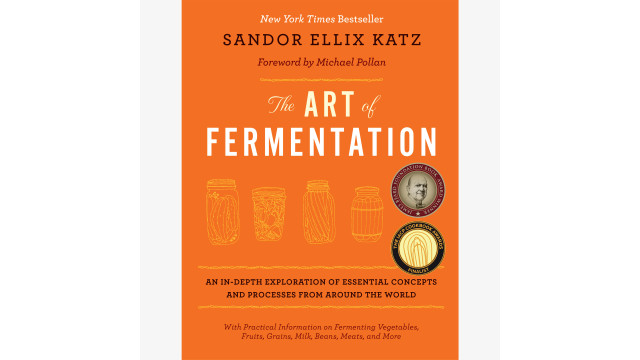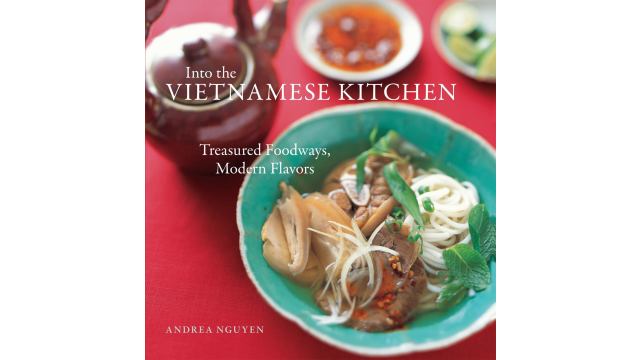Fermented Goodness

In 2015, after neglecting my health for nearly a decade as a restaurant worker, I sensed that something was out of balance. Skipping meals to get prep done, loading up on carb-laden staff meals, or getting by on scraps or the nearest broken cookie to make it through a shift were typical eating behavior. My blood sugar was on a multi-year roller coaster ride, which just got more dramatic as my responsibilities at work grew. I was an assistant pastry chef in San Francisco at the time, and I was searching for a lifeline.
I went to the doctor for a check-up, expecting to discover a women’s health issue. My lab work results revealed unnerving news: I was on the precipice of diabetes, dangerously close to full-blown irreversible disease. Part of my reality was that I was genetically inclined to develop type-2 diabetes. The doctor assured me I could make lifestyle changes to build a healthier version of myself.
Pickling to better health
I knew I still wanted to work in food, but it was clear that I needed to switch careers. I declined a job offer for a higher position at my broken dream job, and I returned home to L.A. While processing what felt like a sudden loss, I found a new way of approaching life through a pre-industrial, pre-colonial, ancestral dietary practice: pickling.
Looking back, I see now that it took a couple of decades for me to connect deeply with the foods of my heritage as a way of restoring myself. The complex fermented flavors I was naturally drawn to brought me back to the roots Nai Nai first nurtured. I had only to look in my pantry and fridge — soy sauce, preserved black beans (a byproduct of soy sauce brewing), black vinegar, rice vinegar, creamy brined bean curd, broad bean paste, chile sauce, just to name a few — how much flavor and life they contained!
When we visited my grandparents’ apartment in Monterey Park in the ’90s, a jar of homemade pickled vegetables or jiuniang rice wine, made by Nai Nai or one of my aunts, was pulled out of the fridge to enhance each meal. I remember wanting more of the cold, crisp pao cai cabbage pickles flecked with carrots like commas. They made even their humble vessel, a repurposed glass condiment jar, gleam with beauty. They weren’t spicy with chile heat, but Sichuan peppercorns (botanically related to citrus) gave them an aromatic and tingly spice note.
In recent years I noticed that Nai Nai — who was born and raised in Hubei in central China, where fermented rice wine is featured in its famous dishes — has quite an appetite for vinegar. Black vinegar, made from grains sometimes combined with legumes such as peas, is a condiment ubiquitous in China, used to marinate vegetable and mushroom dishes and for dunking dumplings. When we ate out, she always asked for more black vinegar to properly drench the marinated cold dishes. And she liked to take a mysterious vinegar shot in the afternoon. If I was cooking for her, she asked for quick pickled cucumbers, dressed with smashed-garlic-infused rice vinegar and sesame oil.
Fermented nutrients
She was craving the complex nutrition contained in fermented foods that are responsible for preserving our collective wellbeing and maintaining our very existence on this planet. Studies have revealed the curative qualities of fermented foods, which include the phenomenon of bioavailability. The fermentation process unlocks nutrients that were previously inaccessible so that our bodies can absorb them. And by making and eating more fermented foods, we are capable of protecting and strengthening our immune systems. The immunity enhancing qualities of fermented foods include introducing bacteria to the intestines where they not only aid digestion but actively synthesize essential nutrients such as thiamine and Vitamin K.
Nai Nai was inherently aware of the brain-gut connection before it became a research topic among Western medical researchers. She had never studied nutrition, but she knew from experience how her body responded to certain foods. These were the same foods that kept her ancestors alive, and the same foods (other than soy sauce) that for a time in my life I was separated from and felt desperate for.
Have you ever wondered why soy sauce — made by fermenting soybeans and wheat — is so delicious? With the help of a vintage Chinese cookbook written in English (one of my most prized thrift store finds!) and occasional Skype calls with my mom who lived in Thailand at the time, the first Chinese cooking methods I learned were braising and glazing with the fermented richness of soy sauce. As noted by fermentation revivalist Sandor Katz in his book "Wild Fermentation: The Flavor, Nutrition & Craft of Live-Culture Foods," the ferment of beans with grains is a complete protein, “containing all the amino acids essential to human nutrition.” Documentation of this survival food traces back thousands of years: “Ancient Chinese texts refer to jiangs, condiments fermented from beans as well as fish, meat, grains, and vegetables. Jiangs were (and are) made in elaborate variety, and imbued with meaning.”
I realize the lifeline sustaining me has been steadily supporting me all along. Nai Nai as a model eater of pickles and vinegar, the fermented flavors of my childhood, and recipes she shared with me ensure that my connection to fermentation will continue to guide me in maintaining my reclaimed health. These days my blood sugar is at a healthy level, and the frequently disruptive symptoms I experienced when first diagnosed as prediabetic have become minimal. I carry onward with Nai Nai’s spirit.
RECIPE: Liangban Huanggua
RECIPE: Pao Cai
Key Takeaways
- Fermentation has curative benefits.
- It boosts gut health and immunity.
- It helps to preserve food.





